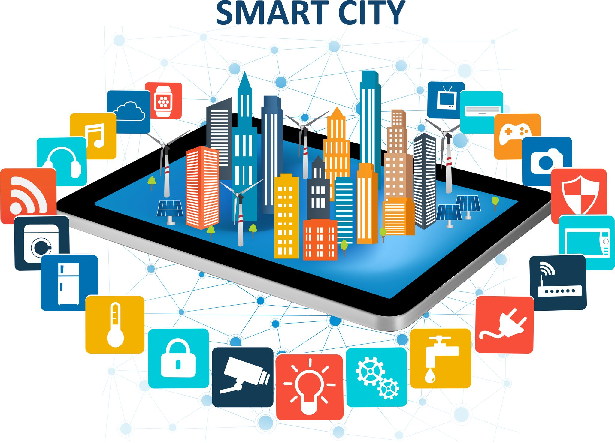
The Brazilian Agency for Industrial Development (ABDI), together with Inmetro, presented, this Wednesday (22), the Technology Demonstration Environment for Smart Cities to interested companies. The ideas will be put to the test within the Inmetro campus in Xerém, Rio de Janeiro. Representatives from more than 20 projects visited the facilities.
ABDI's smart cities project leader, Carlos Frees, guided the visit participants, indicating where the solutions will be installed. Campus roads and parking lots, for example, will become smart. “It will be possible to know where there are spaces and to control the traffic from a distance, avoiding unnecessary traffic jams and displacements”, explains Frees. In the main building of Inmetro, the heart of the mini-city will be installed – the command and control center. From this location, technicians will be able to assess the good progress of the project and even carry out interventions remotely.
The first scenario set up in the environment will be intelligent lighting. “This choice was made by demand. More than 130 municipalities are debating this agenda”, points out Frees. Lighting goes beyond simply turning on lights at night. The poles will receive sensors and cameras, which will be able to assist in traffic control and even in security. The second scenario integrates with the first, dealing with traffic monitoring. The third scenario is the institution of urban vehicles – such as electric and shared cars and bicycles. “One scenario is set up in function of the other. Lighting helps with mobility, it helps in vehicles”, explains Frees.
In the second half of 2018, the first initiatives should begin to be tested. “The Inmetro campus can be considered a small city. There is a large flow of people, several systems working, such as water, sewage, refrigeration and electricity. We will have a good idea of how it works”, points out Rodolfo Souza, from Inmetro's Metrology and ICT division.
The visit participants believe that the initiative helps to advance the concept of smart cities in Brazil. Luis Carlos Rosa, from Seip7, points out that it is essential to test the solutions. “We developed a platform for monitoring water to reduce waste, which brings savings and benefits to the environment. The testing environment for us is essential, because we need to validate and show that our solution works, and that way we can reach city halls and other institutions”.
Demonstration
Many solutions use miniature sensors or platforms that are not visible. Concerned about this, the place plans to install a showroom. In this area, mayors will be able to see those technologies that make a difference, but which in practice are hidden inside a pole, cable or pipe.
Once the solutions are tested and approved, they will be part of a catalog of smart city initiatives. Mayors will then have content available for consultation and, eventually, implementation in their municipalities. For solutions that cannot be tested at Inmetro, such as the case of the electric boat – which was presented to ABDI –, the idea is to establish partnerships with other places in the country. So far, 101 companies have declared their intention to participate in the environment, registering 141 solutions with ABDI.
Internet of Things
Technologies for smart cities entered the study of the Internet of Things (IoT) by the Ministry of Science, Technology and Communications (MCTIC). MCTIC's plan coordinator, Thales Netto, defends that the environment is fundamental for the implementation of IoT in Brazil. “You have to have solutions, otherwise there is no internet of things. These initiatives have to be evaluated for the use of the mayors”.
In the middle of this year, a study on the Internet of Things in Brazil was launched. Four areas of action were listed. In addition to smart cities, the areas of Health, Agriculture and Industry were chosen.












